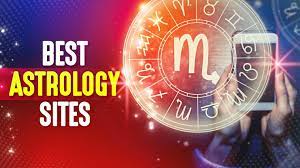Interpreting a birth chart involves analyzing the best astrologer in new york positions of celestial bodies in relation to the zodiac signs and astrological houses. Each planet’s placement within a sign and house can offer nuanced insights into different facets of an individual’s life, such as relationships, career, emotions, and spirituality.
Astrologers use various techniques, including transits (current planetary movements), progressions, and aspects (angular relationships between planets), to make predictions and offer guidance. However, it’s crucial to note that astrology isn’t deterministic and doesn’t dictate a fixed future; instead, it provides a framework for understanding potential energies and tendencies.
Criticism and Skepticism
Despite its enduring popularity, astrology faces skepticism and criticism from skeptics and scientists who argue that its principles lack empirical evidence and scientific validity. Critics often challenge the generalizations made by astrologers and emphasize the absence of controlled studies supporting astrology’s claims.
Moreover, the practice of Sun-sign astrology in popular media often oversimplifies the complex art of astrology, leading to misconceptions and misunderstandings about its depth and intricacy.
Final Thoughts
For many individuals, astrology serves as a tool for self-reflection, personal growth, and understanding interpersonal dynamics. Whether embraced as a guiding philosophy or approached with skepticism, astrology continues to influence cultural narratives and perspectives on human existence.
Ultimately, astrology remains a subject of fascination, offering a unique perspective on the interconnectedness between celestial phenomena and human experiences. Its enduring appeal lies in its ability to provide a sense of meaning and symbolism within the vast cosmos, inviting us to contemplate our place in the universe.
